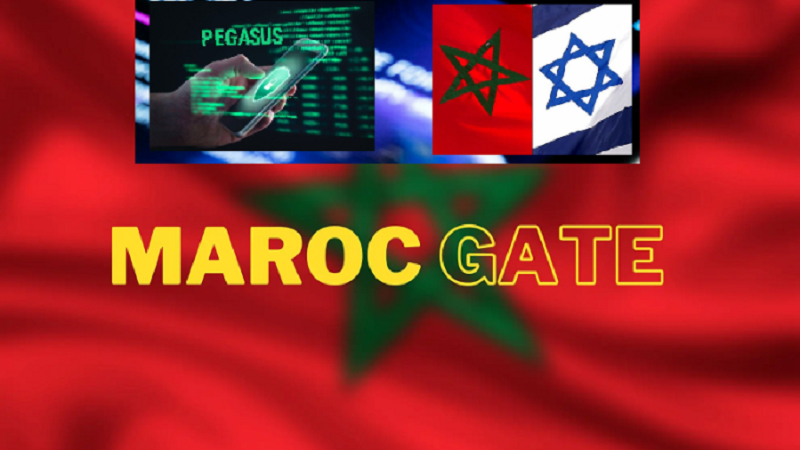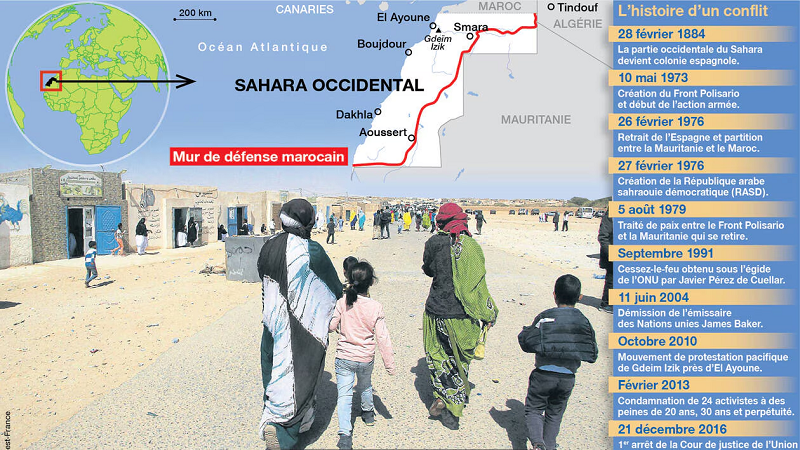Tags : Morocco France, Netherlands, Spain, Belgium Germany, blackmail, migration, Pegasus, counterterrorism cooperation,
Morocco: intimidate with immigration and suspension of counterterrorism cooperation
Belgian justice has taken the unprecedented decision to transfer the bulk of the investigation into the Qatargate scandal, a corruption scheme in the European Parliament, to Rabat. Belgium appears to be capitulating to Morocco.
By Ignacio Cembrero
Belgium is the latest to succumb to the Kingdom of Morocco. In April, at the prosecution’s request, its justice system made the unprecedented decision to allow the two alleged instigators of Qatargate, the largest corruption scandal in the history of the European Parliament, to be investigated and possibly tried in their own country. Both—a diplomat and a secret agent—were Moroccans who obeyed orders from their authorities. Does anyone really believe they will be properly investigated?
Why did Belgian justice decide, after 16 months of investigation, to hand over part of the Qatargate case to Moroccan authorities, which should rightly be called Moroccogate since it was orchestrated by Moroccans? According to Brussels daily Le Soir, Belgian Prime Minister Alexander De Croo traveled to Rabat with three ministers around that time and obtained what he had desired for years: the ability to repatriate irregular Moroccan immigrants. A first group of 700 was to be expelled shortly, as announced then.
If this hypothesis holds true, Morocco would once again demonstrate its ability to leverage not just economic but also political benefits from its emigration in Europe. There are several precedents before the recent Belgian episode.
Three years ago, Morocco and the Netherlands signed an agreement on labor, details of which the Dutch government resisted disclosing to Parliament until September 2022. It also speeds up immigrant repatriation but came with a double condition. The Hague pledged not to interfere in Morocco’s internal affairs, meaning none of its ministers could criticize, as Dutch Foreign Minister Stef Blok did in 2018, the repression of the peaceful Rif rebellion, for example.
The second concession from the Netherlands, which Spain and Belgium have not yet subjected themselves to, stipulates that the Dutch government will consult with Morocco regarding the aid it provides to NGOs implementing projects in Morocco, according to NRC Handelsblad. Does consultation mean Rabat has a veto right? Spain has been dealing with fluctuations for a quarter of a century, which Defense Minister Margarita Robles courageously denounced as « blackmail » and « threat » on May 20, 2021. These were astonishing terms coming from a socialist minister, just after more than 10,000 irregular immigrants, a fifth of whom were minors, entered Ceuta in less than 48 hours.
Spain’s Case
This massive influx, which Moroccan Foreign Minister Nasser Bourita shamelessly attributed to « police fatigue after Ramadan celebrations, » somewhat tarnished Morocco’s image but effectively led to the bending of Sanchez’s government in the long-standing crisis with its neighbor. This resulted in the dismissal of Foreign Minister Arancha González Laya, a shift in stance on Western Sahara, and many other concessions.
Another pressure tactic used by Rabat, in addition to immigration, is cooperation in counterterrorism, which many European police forces consider crucial because the majority of attacks in the last decade have been perpetrated by individuals of Moroccan origin.
Morocco officially severed cooperation with Spain for a month in retaliation because the yacht carrying King Mohammed VI was mistakenly intercepted by the Civil Guard on August 7, 2014, when it crossed Ceuta’s waters. On that occasion, Rabat combined the suspension with a migration sanction: Nearly 1,100 undocumented individuals landed on the Peninsula on August 12, 2014. From their testimonies, it was clear that day posed no obstacles to sea crossing.
Most migration agreements signed with Morocco are meaningless.
With France, Morocco also interrupted police and judicial cooperation for almost a year from February 2014 to January 2015, a period when the country was heavily impacted by jihadist violence. In return, Morocco achieved its greatest political feat in Europe when the French National Assembly modified its judicial cooperation protocol with Morocco in June of that year to prevent the top Moroccan police chief, Abdellatif Hammouchi, from experiencing another inconvenient episode in France.
Hammouchi was at the residence of the Moroccan ambassador in Paris on February 20, 2014, when French judicial police knocked on the door intending to bring him before an investigating judge probing three torture allegations against him. He hastily fled the country. To make amends, France awarded him the Legion of Honor a year later, alongside police merit medals from successive Spanish interior ministers.
Most of the migration agreements signed with Morocco are ineffective when it comes to adults and even more so with minors. Spain was a pioneer in April 1992 by signing the agreement on the « readmission of illegally entered foreigners. » More than 30 years later, returns are carried out sparingly. According to police sources, they fluctuate between 2% and 5% of irregular entries. A significant portion is conducted by plane from the Canary Islands and is costly, requiring two police officers per expelled immigrant. Flights go to El Aaiún, the capital of Western Sahara, to emphasize its belonging to Morocco.
The naivety of politicians and even the press is sometimes terrifying regarding immigration. In France, everyone celebrated in July 2018 when half a dozen Moroccan police officers and social workers arrived in Paris to interview a group of minors living on the streets and causing discomfort in the Goutte d’Or neighborhood, with the aim of repatriating them. The police officers returned, but none of the adolescents went back to Morocco.
In addition to being a pressure tool, immigration is a source of income for the Moroccan state—its remittances amount to 8.5% of GDP, more than tourism—and also serves as an outlet for unemployed and discontented youth. The repression in the Rif, which began in May 2017, not only involved imprisoning leaders—four of the most prominent remain incarcerated—but also turned a blind eye to those clandestinely heading for Spain.
As Moroccan authorities and their local lobbies have gained concessions, they have become emboldened enough to interfere in the political and cultural lives of their European neighbors. In France, for instance, they managed to cancel the concert of Sahrawi singer Aziza Brahim at the Arab World Institute in March 2019, despite tickets being sold out.
Issues such as their monarchy, the Rif, the Western Sahara conflict, and the arms race with Algeria are taboo subjects.
In France, President Emmanuel Macron became angry with King Mohammed VI when he learned in July 2021 that he and much of his government had been spied on by Moroccan secret services using the malicious Pegasus program. Moroccan writer Tahar Ben Jelloun, who is close to the royal palace, recounted the three heated phone conversations between Macron and the monarch. « He disrespected him, » the novelist said.
President Sánchez and at least three of his ministers were also spied on with the same program, and the Spanish government even reported this to the National Court. However, they did not provide any support to the investigating magistrate, José Luis Calama, when he tried twice to carry out a rogatory commission in Israel, the country where Pegasus is manufactured. Calama complained about this in the ruling with which, in July 2014, he provisionally archived the investigation.
In institutions in Spain that depend on Foreign Affairs or Defense, or where these ministries exert influence, Morocco has effectively established preventive censorship. Its monarchy, the Rif region, the Western Sahara conflict, the arms race with Algeria, and similar topics are taboo and never addressed in round tables or debates. This situation applies, for example, at Casa Árabe in Madrid, the Real Instituto Elcano (a think tank), the European Institute of the Mediterranean in Barcelona, and the Spanish Institute for Strategic Studies.
Self-censorship in the press is also prevalent. RTVE has forbidden its journalists from covering activities in Sahrawi refugee camps. Public television channels in Germany, France, the United Kingdom, and Belgium have aired reports on King Mohammed VI or investigations into Moroccan interference in their countries’ internal affairs. The French public radio even participated in the collective journalistic investigation into Pegasus, which came to light in July 2021, broadcasting its findings on air and making them available via podcasts online. Can you imagine a similar scenario in Spain?
Certainly, a media freedom law, as announced by President Sánchez, is necessary. This would enable Spanish public media to follow the example of their counterparts in the rest of Europe.
El Confidencial, Juny 20, 2024
#Morocco #Belgium #France #Nederlands #Germany #Spain #Migration #blackmail #Qatargate #Moroccogate #Pegasus


